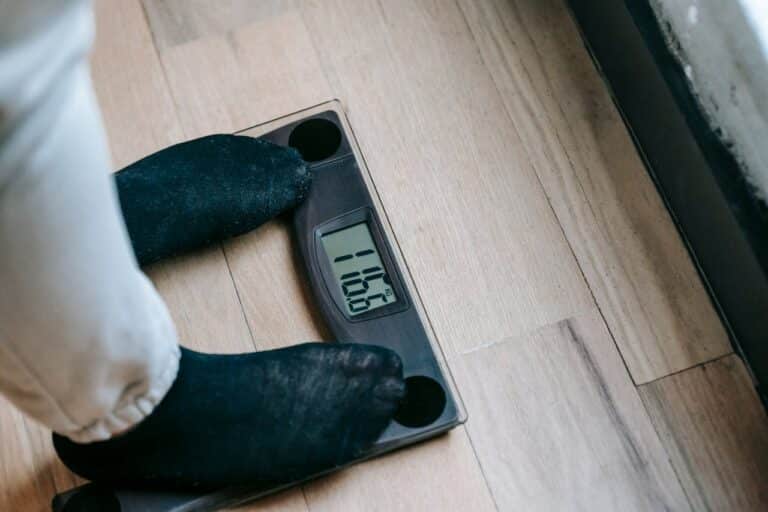Are Carbohydrates Bad for Weight Loss? The Truth Revealed

- Should You Train To Muscle Failure Every Set? What You Need To Know - March 4, 2025
- Nutrition in a Hurry: Top Post-Workout Snacks for Active People - February 20, 2025
- 15 Healthy Meal Prep Recipes: Your Weight Loss Made Easy - February 18, 2025
Carbohydrates aren’t bad for weight loss; in fact, they can support your goals when you choose the right types and manage your intake. Complex carbs, like whole grains and vegetables, provide lasting energy and keep you feeling full. It’s all about balance: incorporate quality carbs while avoiding simple sugars that spike blood sugar levels. Like carb cycling, strategic timing can also enhance your workouts and recovery. Remember, a well-rounded diet that includes healthy carbohydrates can aid in weight management. Keep exploring to uncover more insights on effectively integrating them into your diet.
Key Takeaways
- Carbohydrates are essential for energy, fueling workouts, and daily activities, making them important for weight loss efforts.
- Quality matters: Whole, unprocessed carbs enhance satiety and support weight management, unlike simple, processed sugars.
- Carb cycling can strategically aid fat loss by alternating high/low carb days to optimize energy and recovery.
- Myths persist that all carbs are harmful; a balanced diet with healthy carbs can promote overall health and weight loss.
- Personalizing carb intake based on individual needs and activity levels leads to better results in weight management.
Understanding Carbohydrates

Although carbohydrates often get a bad rap in weight loss discussions, they play an essential role in your diet. Understanding how your body processes carbs is vital for ideal health. When you consume carbs, your body breaks them down into glucose through a process known as carb digestion. This glucose serves as your primary energy source, fueling your workouts and daily activities.
Moreover, the fiber found in many carbohydrate-rich foods offers additional benefits. It aids in digestion, promotes satiety, and helps regulate blood sugar levels. By incorporating complex carbohydrates, such as whole grains and vegetables, into your meals, you can harness the power of fiber while providing your body with the energy it needs. Fast-digesting carbs are also important for quick energy replenishment during workouts. Embrace carbs wisely, and you’ll support your overall well-being.
The Role of Carbs in Weight Loss
Carbohydrates can be a key player in your weight loss journey when approached thoughtfully. Understanding carb timing and carb cycling can help you maximize their benefits while shedding pounds. By consuming carbs strategically, you can fuel workouts and replenish glycogen stores without excess fat gain. Additionally, implementing carb cycling patterns can enhance your metabolism and support muscle preservation during weight loss.
| Carb Strategy | Description |
|---|---|
| Carb Timing | Eating carbs around workouts boosts energy and recovery. |
| Carb Cycling | Alternating high and low carb days to manage insulin levels and promote fat loss. |
| Moderate Intake | Consuming moderate carbs can maintain energy while supporting metabolism. |
| Quality Choices | Prioritizing whole, unprocessed carbs for better satiety. |
| Personalization | Tailoring carb intake to individual needs enhances results. |
Types of Carbohydrates

When choosing carbohydrates for your diet, it is vital to understand the different types available and how they impact your body. Simple carbohydrates, found in foods like candy and soda, are quickly digested, leading to rapid spikes in blood sugar levels. These can leave you feeling hungry sooner, which isn’t ideal for weight loss. On the other hand, complex carbohydrates, such as whole grains, legumes, and vegetables, digest more slowly, providing sustained energy and keeping you full longer. Incorporating more complex carbs into your meals can support your weight loss efforts while offering essential nutrients. For instance, green leafy vegetables are excellent sources of fiber, which can further aid in weight management. By mastering the distinction between these types, you can make informed choices that align with your health goals and optimize your carbohydrate intake effectively.
Myths About Carbs
Many people believe that cutting carbs is the key to effective weight loss, but this myth oversimplifies a more complex issue. Carb misconceptions can lead to unnecessary carb phobia, hindering your progress. Here are some common myths you should be aware of:
- All carbs are bad: Not all carbohydrates are created equal; whole grains and fruits provide essential nutrients.
- Carbs make you gain weight: Weight gain occurs when you consume more calories than you burn, not solely from carbs.
- You must eliminate carbs completely: Balanced diets that include healthy carbs can support weight loss and overall health. Additionally, understanding metabolic rate is crucial for creating a sustainable weight loss plan.
Understanding these myths helps you make informed choices, allowing you to enjoy a variety of foods while still reaching your weight loss goals.
The Science Behind Weight Loss
Understanding the science behind weight loss is essential for making effective lifestyle changes. At its core, weight loss hinges on creating a caloric deficit, which means you’re consuming fewer calories than you burn. This deficit forces your body to tap into stored fat for energy. Your metabolic rate plays a vital role in this process; it determines how many calories your body needs at rest and during activity. By increasing your activity levels or adjusting your diet, you can influence your metabolic rate. Mastering these concepts allows you to strategically manage your caloric intake and expenditure, ultimately leading to sustainable weight loss. Remember, it’s not just about cutting calories but understanding how your body uses them. Additionally, hormonal fluctuations can significantly impact how your body stores fat and utilizes energy, especially as you age.
Balancing Carbohydrates in Your Diet
Creating a caloric deficit is important, but how you balance carbohydrates in your diet can greatly impact your weight loss journey. Mastering carb cycling can be a game changer, allowing you to strategically adjust your carb intake for ideal fat loss and muscle retention. Pairing this with effective portion control guarantees you’re not overindulging.
Consider these strategies for balancing carbs:
- Plan your meals: Set specific carb days to maximize energy and recovery.
- Monitor your portions: Use measuring tools to keep portions in check.
- Stay mindful: Listen to your body’s hunger cues to avoid unnecessary snacking.
Healthy Carb Sources

While choosing the right carbohydrates can feel overwhelming, focusing on healthy sources is essential for your weight loss journey. Incorporating foods like quinoa can greatly enhance your diet; its benefits include high protein content and essential amino acids, making it a smart choice for muscle maintenance and energy. Sweet potatoes also shine in the area of healthy carbs—packed with vitamins A and C, sweet potato nutrition supports immune function and provides a steady energy release due to its low glycemic index. By prioritizing these nutrient-dense options, you’ll not only satisfy cravings but also fuel your body effectively, aiding in weight loss and overall wellness. Embrace these healthy carb sources, and watch your progress soar!
Practical Tips for Carb Management
To effectively manage your carbohydrate intake, start by planning your meals around whole, unprocessed foods. This approach not only enhances nutrition but also helps with portion control. Implementing carb counting can further refine your strategy, ensuring you stay within your daily limits while still enjoying your meals.
Here are a few practical tips to help you master your carb management:
- Prioritize vegetables and lean proteins at each meal.
- Use measuring tools to accurately gauge portions.
- Keep a food diary to track your carb intake and adjust as necessary.
Frequently Asked Questions
Can Cutting Carbs Completely Help Me Lose Weight Faster?
Cutting carbs can lead to quicker weight loss initially, but it’s essential to maintain a balanced diet. Instead of eliminating carbs, focus on smart carb-cutting to sustain long-term results and overall health.
Are Low-Carb Diets Safe for Everyone?
While low-carb diets can offer benefits, they aren’t universally safe. Individuals with certain health conditions may face risks with diet restrictions. Always consult a healthcare professional to guarantee your dietary choices support your overall well-being.
How Do Carbs Affect My Mood and Energy Levels?
Carbs play an essential role in your mood and energy. When you cut them too much, you might experience carb cravings and mood swings. Balancing your intake helps maintain stable energy and emotional well-being.
Can I Eat Carbs at Night Without Gaining Weight?
You might think nighttime snacking leads to weight gain, but it’s all about carb timing. If you choose healthy options and control portions, you can enjoy carbs at night without compromising your weight goals.
What Happens to My Body When I Stop Eating Carbs?
When you stop eating carbs, your body undergoes metabolic changes, relying on fat for energy. This can impact brain function, leading to fatigue and difficulty concentrating, as your brain prefers glucose from carbohydrates for peak performance.
The Verdict: Carbs Aren’t the Problem—It’s How We Eat Them
To summarize, Are Carbohydrates Bad for Weight Loss? it’s all about balance. Curiously, studies show that people who consume a moderate amount of carbs, around 45-65% of their daily calories, often find it easier to maintain their weight long-term. Instead of cutting out carbs entirely, focus on choosing healthier options and managing your intake. This way, you can enjoy a satisfying diet while still reaching your weight loss goals. As the 2025 dietary guidelines emphasize, a flexible, individualized approach works best.
Table of Contents






